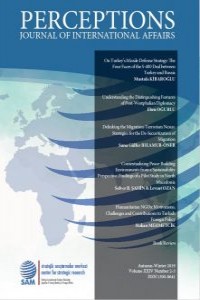Contextualizing Peace-Building Environments from a Sustainability Perspective: Findings of a Pilot Study in North Macedonia
Abstract
Sustainability constitutes a key element of peace, which denotes not only the absence of war but also the presence of social conditions and capacity that enable the
attainment of development outcomes in areas vital to basic human needs. Under this premise, this study explores how and which areas of sustainability may contribute to efforts to establish lasting peace in conflict-affected, fragile settings. It draws upon the framework of “circles of sustainability” to provide a preliminary
trends analysis of the peace-building environment in North Macedonia. We have cross-referenced relevant policy documents with the public opinion of the citizens.
The results obtained from this method yielded both similarities and differences, such as the fact that the economy was ranked second in both policy documents and
public opinion. Differences emerged with regard to the prioritization of ecological and cultural aspects, with policy documents privileging ecology and public opinion
heavily focusing on cultural factors. In light of the latest manifestations of cultural tensions during the referendum process on changing the country’s name, it becomes
both an urgent and challenging task for policy-makers to consider which cultural aspects are important to the public and how they can be addressed.
References
- Kaynakça yok
Details
| Primary Language | English |
|---|---|
| Subjects | Political Science |
| Journal Section | Articles |
| Authors | |
| Publication Date | December 27, 2019 |
| Published in Issue | Year 2019 Volume: 24 Issue: 2 |

